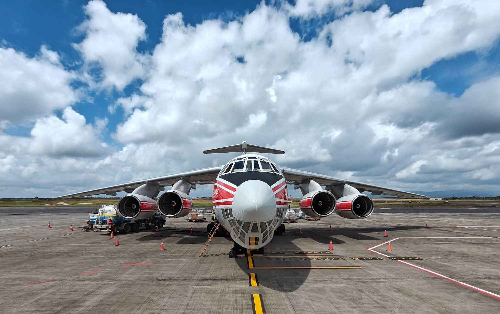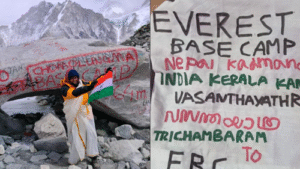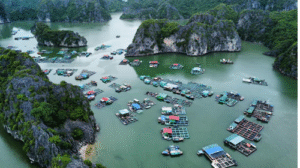In a monumental leap for India’s polar science program, the nation successfully launched its first-ever direct air cargo mission to Antarctica. A heavy-duty Russian-built Ilyushin Il-76 (IL-76) cargo aircraft, nicknamed ‘Gajraj’ in Indian service, took off from the Manohar International Airport (Mopa) in Goa on October 2, carrying 18 tonnes of vital supplies and sophisticated scientific equipment.
Organised by the Goa-based National Centre for Polar and Ocean Research (NCPOR), the historic flight marks a significant shift from the traditional sea route, which often took up to 40 days, including transit and port calls.
Dr. Thamban Meloth, Director of NCPOR, flagged off the mission and highlighted its importance. “This direct route strengthens India’s self-reliant polar logistics and underscores our commitment to cutting-edge Antarctic research,” he stated.
The 18-tonne cargo included essential supplies like medicines and annual provisions, alongside high-end scientific instruments for Indian researchers at the Bharati and Maitri research stations. These supplies are crucial for ongoing scientific studies in glaciology, oceanography, and climate science.
The necessity for an air route was driven by unacceptable delays in sea shipments, particularly following global supply chain disruptions caused by the COVID-19 pandemic. According to NCPOR officials, these delays often forced researchers to wait for essential gear, hindering the overall mission.
The chartered IL-76 aircraft, which is part of the Dronning Maud Land Air Network (DROMLAN), flew via Cape Town, South Africa. Its final destination on the continent is Troll Airfield, a 3.3-kilometer blue-ice runway near Norway’s Troll research station.
The IL-76, a strategic airlifter, was chosen for its rugged design and unique capabilities, including special low-pressure tires that allow it to safely land and operate on the icy, frozen blue-ice runways of Antarctica—an aviation feat reserved for highly trained, almost test-level, pilots.
This mission cements Goa’s emerging role as a key gateway for India’s scientific expeditions to both the Arctic and Antarctic, ushering in an era of enhanced logistical efficiency and reliability for India’s vital climate and polar research.
The National Centre for Polar and Ocean Research (NCPOR), under the Ministry of Earth Sciences, is the nodal agency for India’s scientific expeditions to the Arctic and Antarctic. India has two permanent research stations in Antarctica: Maitri (since 1989) and Bharati (since 2012).







